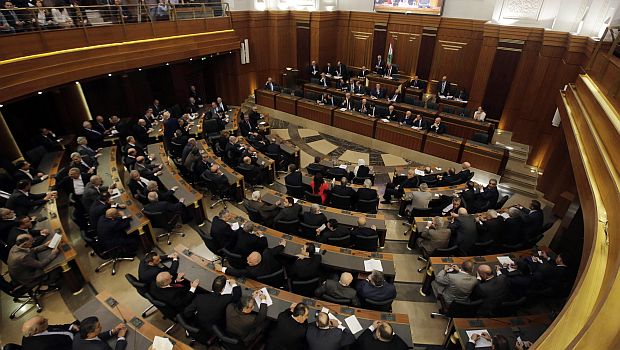In the Lebanese political scene, a president who belongs to a particular political party is not, of course, a “consensus” president. This term, which a well-known part of the Lebanese political vernacular, indicates a president without affiliations to any of the three conflicting political forces in Lebanon: the March 8 Alliance, the March 14 Alliance, or those parties unable to choose between them.
Electing a president who “belongs” to a party would only result in an intensification of opposition and conflict in Lebanon. One example of a partisan president from recent history is President Amine Gemayel, who served from 1982 to 1988. In the beginning, his presidency was at least in part reasonable and acceptable, after he disrupted the balance of power in Lebanon following the Israeli invasion in the summer of 1982. But his time in office later turned tragic, ending with a power vacuum, two fractured governments, a broken economy and general lawlessness. Lebanon became a weak state, and different parties had official powers of confiscation. President Gemayel was forced into exile, after the Lebanese Forces occupied the offices of his Kataeb Party.
Of course, there are those who believe the current situation is different and that the facts and circumstances have changed. The era of President Gemayel has passed. It was more or less an integral part of the Lebanese civil war, with all its tragedies and consequences. But the implications of this hypothesis are still relevant. The fragile balances in Lebanon remain the same, and an additional, undeniable factor has entered the scene Hezbollah and the political circles that either orbit or align with it.
Thus, in the present balance of power between the March 8 Alliance and the March 14 Alliance, a presidential candidate belonging to one of the two moves in to the Baabda palace by breaking down the other party, thus opening the door to further conflict. It is no longer a secret that the period following the assassination of Prime Minister Rafik Al-Hariri was more or less a power struggle between the two parties. Each went out into the streets again and again, with access to political and media weapons that were previously considered “taboo.” It reached a point that many Lebanese, during moments of intensification, would put their hands to their hearts in fear of the return of civil war. The distinguishing mark of this period was the May 2008 war.
In the years after that conflict, the parties flexed their muscles, tested each other’s forces and engaged in dangerous political brinkmanship. They would bet on changes at the domestic, regional and international levels in the hope that one party would outweigh the other, or at least reinforce their presence in the face of the opposition.
It is no longer surprising, then, how the March 14 Alliance (and any party hostile to the regimes in Tehran and Damascus) behaved in the period following the 2005 parliamentary elections. The Alliance had gained power. It had received a majority in parliament in those elections, and Syria abandoned its guardianship of the country, despised and ridiculed for its failures in the previous stage.
But things did not run smoothly for the March 14 Alliance for long. Its opponent—the March 8 Alliance—managed to create an understanding with the Free Patriotic Movement led by Gen. Michel Aoun and forge a common front.
The March 14 Alliance returned with another victory in the 2009 elections and was able to restore morale, which had waned following the power struggle earlier that year. Events later turned against it, however, with the cabinet collapse of Prime Minister Saad Al-Hariri after less than a year in office. At that point, the March 8 Alliance completely secured its own government under Prime Minister Najib Mikati. The March 14 Alliance was forced to retreat to the trenches to restore what it believed it had lost, the result being the present government led by Prime Minister Tammam Salam. This implicitly formed a type of balance of power characterized by “compulsory partnership.” Thus, the experiences of the last ten years prove without a doubt that any attempt to break the balance and cancel out the opposition leads in one way or another to pulling the country out of the frying pan and into the fire.
Accordingly, any serious thought about a president who belongs to a certain party or movement—in other words, someone who is not a “consensus” president—is tantamount to planning a way to destroy what remains of the pillars of the state and its institutions.
We must beware of repeating the experience of Amine Gemayel in the 21st century.
The counterpoint to this article can be read here.
